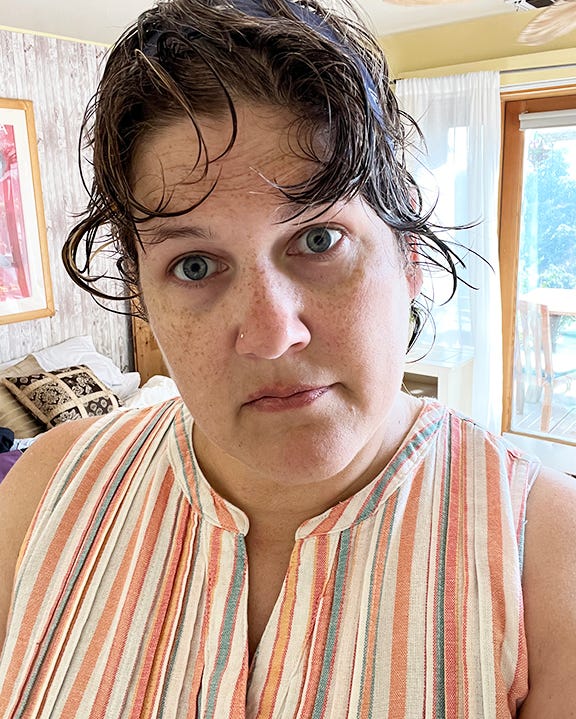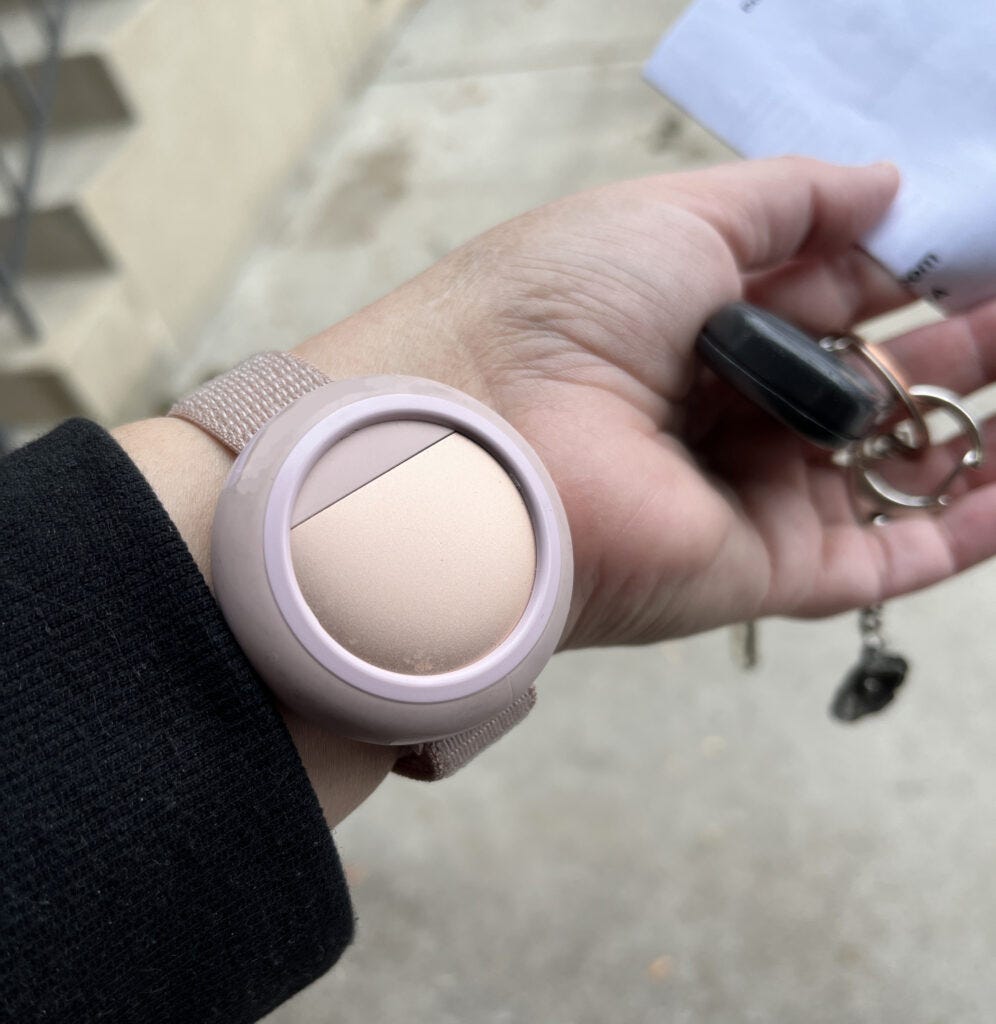Do our voices need lube now too?
+ Meet the Midster who's calls herself "the lawyer with ADHD known to talk back to media"

Raspy voice in midlife?
Here’s how to make your voice clear and powerful
By Alicia Dara
Everywhere you look in the Menoverse lately, new information is coming to light about how the menopausal transition affects every single organ system in our bodies. You might already have felt peri-/menopausal effects on your joints, your vag, or even your memory — the brain is a powerful organ — but how about your voice?
According to a recent study, the same declining estrogen levels that can cause hot flashes and vaginal dryness can also affect the larynx, the tiny but mighty organ that houses your vocal cords. Estrogen is a powerful driver of lubrication in the body, and without enough of it you may experience a constant, nagging dryness, raspiness, and/or scratchiness in your throat — the result of chronic inflammation. Your voice might even become lower in pitch, as the larynx shifts position to better accommodate its new conditions.
Women are often surprised by sudden hormonal vocal changes
As a speech and presentation coach specializing in strengthening women’s voices in the workplace (and as a lifelong singer), this doesn’t shock me. In fact, I’ve been waiting for science to catch up to what I’ve observed for years, which is that when women’s voices enter midlife, all bets are off. Some of my midlife clients notice that their voices take longer to “wake up” in the morning, or that they will become hoarse, seemingly for no reason, at the end of a regular work day.
One of my new clients, a 52-year-old woman, told me that last spring she walked out onto the floor of the U.N. to give a speech about the economic impact of climate change, and was only able to make it part way through before her voice completely gave out (a colleague had to take over).
Another one of my longtime clients, a woman in her mid-40s, suddenly developed a rasp in her voice if she raises it above conversational volume. Things have been getting worse: when her dog recently escaped from the yard and she had to search her neighborhood while calling to him, she had to take the following day off work to rest her vocal cords, because even whispering was agony.
Sudden and intense vocal issues can be disconcerting, to say the least. I just turned 50, and conditions in my larynx feel distinctly different than they did even in my mid-40s. For one thing, my voice needs more time to recover after I’ve given a big group training or led a meeting. When I practice singing with my band it takes longer to feel warmed up, and sometimes I don’t get there till the 90-minute practice is done. Even in my ’40s it used to take a mere 30 minutes, so this contrast is intense. The overall sound of my voice is fuller, and stronger in certain places, but my stamina is lower (this description, by the way, could also apply to my overall body!).
Meet Lara Kalwinski, the lawyer with ADHD known to talk back to media
I’m in the midst of
Saving for the inevitable and arbitrary layoff many women face in their late 40s and 50s.
The best thing about my current age
Letting go of imposter syndrome.
The best thing I’ve done for myself in midlife
Living this — hurting me only makes me care about/for myself more.
What’s next?
Less.
We’re in the midst of building the Founding Midster program into a membership model — one step at a time. To help build The Midst community and be featured in Meet a Midster, sign up to become a Founding Midster here on The Midst Substack. We’ll email you with more details. If you have questions, email feedback@the-midst.com.

Oh hey, feeling a little stressed?
Embr Wave can help
By Anne Holub
While cooling sensations on skin can help fight sweaty, nauseous, and otherwise life-altering feelings we all get from time to time, a little warm-up can also be beneficial. Sometimes slipping into a warm bath or a cozy sweater can bring on calming sensations at the end of a long day. But we’re also very responsive to small things like human touch or even a hug, when it comes to lowering our anxiety or stress levels.
“Some studies suggest that physical warmth may be an effective substitute if there is no warm hand to hold, at least in some cases,” notes Mithu Storoni MD, Ph.D., in a Psychology Today article about helping the mental health of older adults. “Making a person feel physically warm may sometimes trick them into feeling emotionally warm.”
In this way, the warm sensations from the Embr Wave on the skin of our very temperature-sensitive inner wrists are handy (and possibly more sanitary in our post-Covid timeline).
Heck, even if you’re an office worker forced back into an icy maze of cubicles, this device could discreetly give your body much-needed warm-ups throughout the workday. And it can help you combat the sweaty anxiety of everyday life as a human, too.







